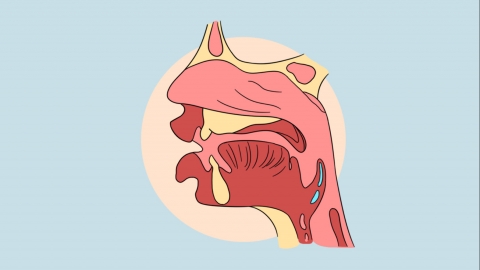How to treat pharyngitis
Generally, pharyngitis may be caused by occupational factors, environmental factors, allergic reactions, bacterial infections, viral infections, and other factors. It is recommended to seek timely medical attention, identify the underlying cause, and proceed with recovery through general treatment and medication under the guidance of a qualified physician. A detailed analysis is as follows:
1. Occupational Factors
Teachers, singers, and other professionals who frequently overuse their voice may experience damage to the throat mucosa due to prolonged vocal strain, leading to inflammation. Symptoms may include hoarseness, dry cough, and others. It is recommended to rest appropriately and avoid excessive voice use. Symptoms can be relieved with throat lozenges, along with voice training and protection measures.
2. Environmental Factors
Long-term exposure to environments with severe air pollution may cause chronic irritation to the throat, leading to pharyngitis. Symptoms may include persistent sore throat, hoarseness, and a foreign body sensation. It is recommended to avoid irritants such as tobacco and alcohol, improve the work and living environment, and undergo physical therapy such as ultrasonic nebulization inhalation when necessary.

3. Allergic Reaction
Allergens such as pollen and dust mites can irritate the throat mucosa, activating mast cells to release histamine and other inflammatory mediators, causing inflammation. Symptoms may include sneezing, runny nose, itchy eyes, and other allergic manifestations. It is recommended to seek medical attention promptly and use antihistamine medications such as ketotifen fumarate tablets, loratadine chewable tablets, cetirizine tablets, etc., to alleviate allergic symptoms. Allergen testing should be considered when necessary, and appropriate measures should be taken to avoid contact with allergens.
4. Bacterial Infection
Infections caused by bacteria such as streptococcus can lead to localized redness and swelling of the throat mucosa, resulting in pharyngitis. Symptoms may include high fever, difficulty swallowing, and swollen tonsils. It is recommended to undergo antibiotic treatment, such as amoxicillin capsules, cefixime dispersible tablets, norfloxacin capsules, and other medications, following the prescribed course as directed by a physician.
5. Viral Infection
Inflammation of the throat mucosa may also be caused by various viruses, such as influenza virus and adenovirus, triggering an inflammatory response. Symptoms may include fever, general malaise, headache, and others. It is recommended to rest adequately, drink plenty of water, and maintain a well-ventilated environment. Symptoms can be alleviated with antipyretic analgesics such as paracetamol tablets, ibuprofen sustained-release capsules, aspirin effervescent tablets, and other medications.
When treating pharyngitis, individuals should choose appropriate treatment methods based on their own conditions. At the same time, maintaining healthy lifestyle habits and a positive mindset is also important.











